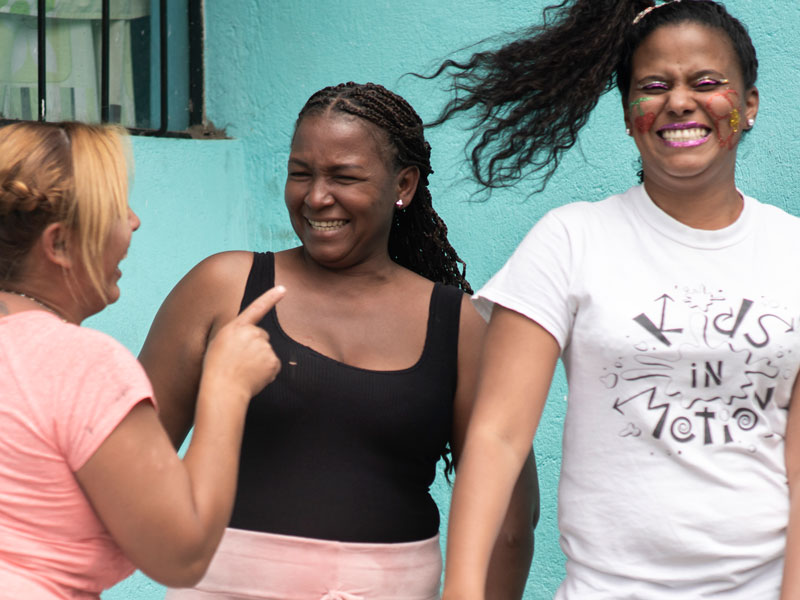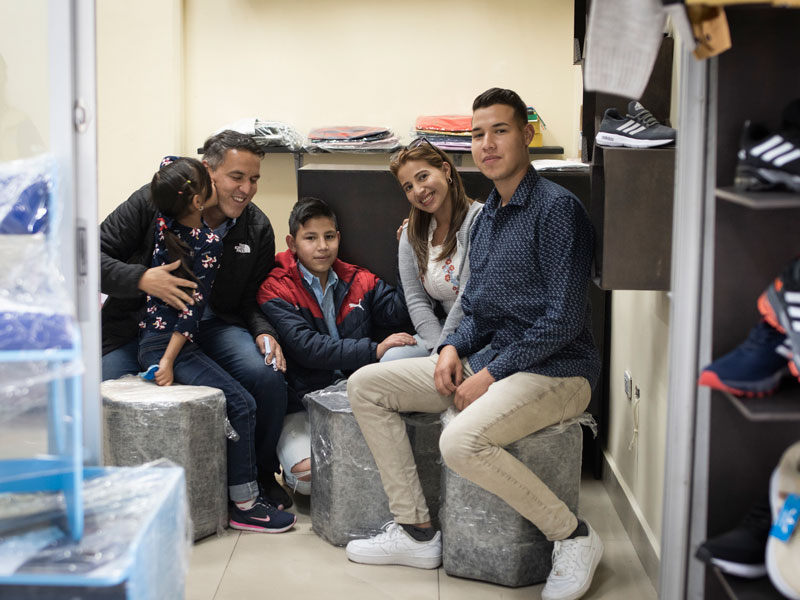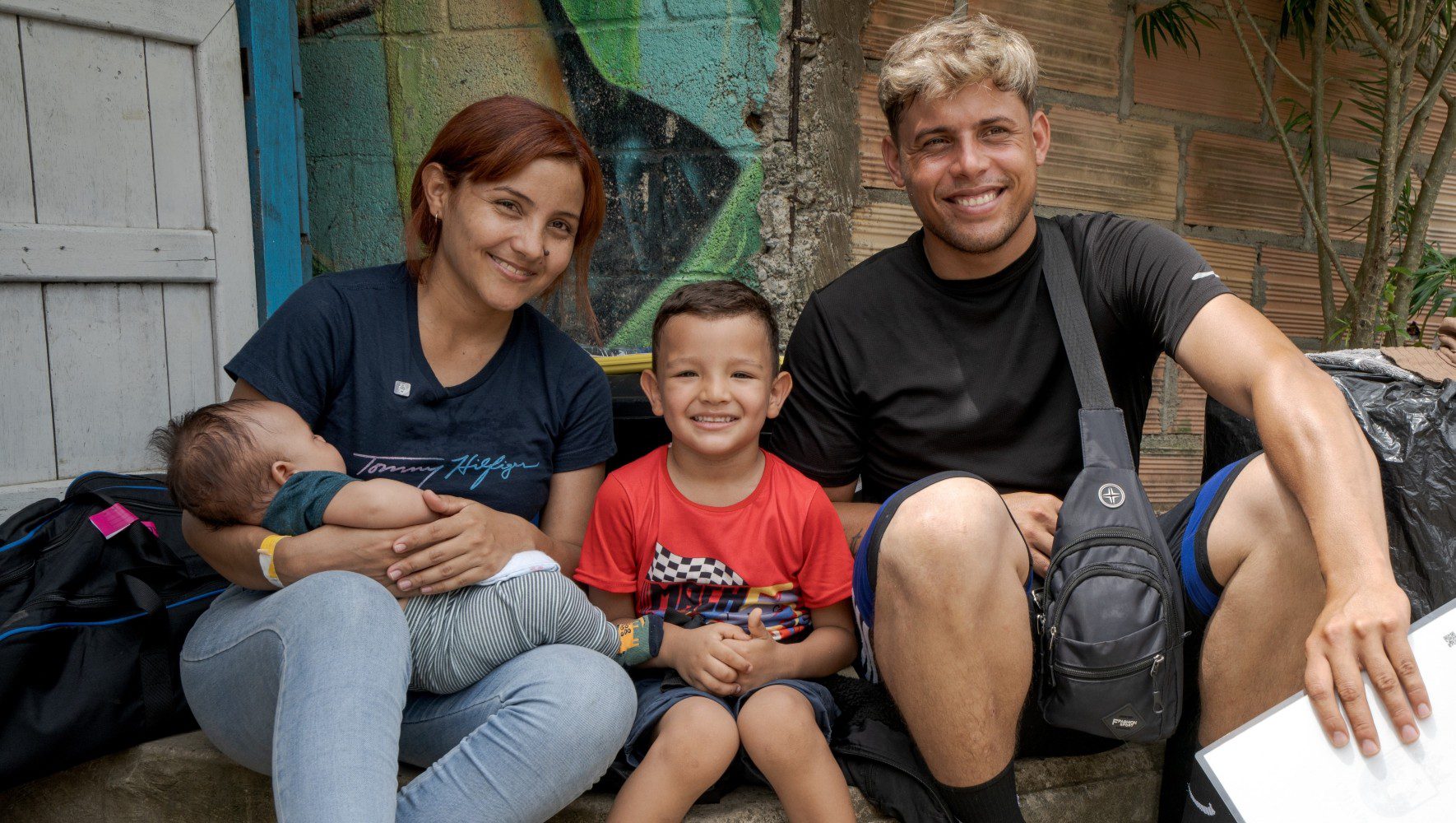Helping Women Find Safety and New Opportunities
By Sharon Samber, HIAS.org
Mar 08, 2021
International Women's Day, marked annually on March 8, aims to highlight women's achievements and raise awareness about women's equality. Today, HIAS not only celebrates women but continues its commitment to addressing the gender-based violence that remains an all too common scourge around the world.
HIAS programs in Ecuador, Israel, and Chad show the different ways HIAS is helping women find safety and new opportunities. Whether it is economic inclusion in Quito, legal assistance in Tel Aviv, or gender-based violence prevention workshops in Tréguine, HIAS is creating safe spaces for women and girls and providing lifesaving and life-changing services to survivors of sexual and physical violence.
HIAS Ecuador provides resources to women and supports them in taking a leading role in their economic futures. Through the Graduation Model Approach, or GMA, families become food secure, enjoy stable and diversified incomes, and have a plan for the future.
María Verónica Monsalve, a Venezuelan refugee who fled her country because armed groups threatened to recruit her sons, arrived with her family in Ecuador in 2019. They were without any savings and survived by only eating twice a day and on whatever money they made selling products in the street. With seed capital from HIAS, they started two businesses, one making desserts and another selling shoes.
Ximena Gomez, HIAS Ecuador’s program analyst, said the women in the program also feel safer and their GBV risks are reduced.
“They are empowered by their opportunity,” she said.
Venezuelan refugees Dayana Medina, Greisy Matos, and Wilkeidys Sanchez became friends in Quito and started a small support group called Dios, Rey de Reyes ("God, King of Kings,") to help vulnerable Ecuadorians and Venezuelans. During the holidays the women, who are in the GMA program, organized a Christmas celebration for the Venezuelan and Ecuadorian children in their neighborhood.
"The most beautiful experience is to help others and to integrate everyone,” said Medina, who fled Venezuela with her husband and two children. “To know that every day, there is a reason to smile. The life of an immigrant is not easy, but it all depends on each one of us.”
In Israel HIAS provides legal aid and advocates for the rights for asylum seekers. While the majority of the 31,000 asylum seekers in Israel are men, it is estimated that approximately 15 percent are women, many of whom are in need of legal protection. HIAS works to promote their access to rights and protection in Israel while trying to secure refugee status for them. Although that ultimate goal seems unreachable — as documented in a HIAS Israel report released last year, the Israeli government has recognized only 0.06 percent of asylum claims — having legal protection while they lack durable status is critical.
Many of the women are survivors of gender-based violence in the form of intimate partner abuse, human trafficking, and other forms of violence, and they seek protection from further risk, as well as the supports needed for recovery. The HIAS Israel legal team shows the women their options.
“We represent these women and give them a voice, but a lot of our work is really about helping them regain control,” said HIAS Israel’s country director, Sivan Carmel.
A number of women come to HIAS because they need help with child protection and enforcing child support payments. Many are single mothers who feel cornered because they need the money for their children but are afraid to potentially expose themselves to renewed attacks by former partners, or in some cases even deportation, explained Rachel Friedman, who manages the family law program.
HIAS also helps Palestinian women, who often find themselves in particularly precarious situations, as they are excluded from the Israeli asylum system and have a separate system for determining their status. They require legal representation to access the most basic rights and protections, submitting requests for status on humanitarian grounds, when possible. “The legal maze they face creates a real need for consultation to enable the lawyer and client to decide together on a course of action,” said Meirav Ben Zeev, a HIAS attorney.
HIAS Chad focuses its activities for women and girls to allow participants free expression and encourages women to make decisions in the home and the community, said Ainta Benane, GBV manager for HIAS Chad. Local leaders are asked to participate and this helps ensure that women and girls will be encouraged to take part in the economic and social life of their community, she said.
In November staff organized a three-day retreat for girls ages 13-18 to discuss the rights of women and girls, the causes and consequences of GBV, and sexual reproduction and health. The sessions also touched on child marriage.
One participant from the Tréguine camp said: “I got married early and dropped out of school to take care of the housework and no longer went to school. This fact affects my future and makes me and my family economically vulnerable. So what I learned...I will no longer permit my child to get an early marriage.”
The girls sharing personal stories helped them learn and also influence their parents’ attitudes, said Tanou Virginie, HIAS’ regional technical advisor for gender and GBV in Africa and Eurasia.
“We created a safe environment for them to share and open up about themselves,” Virginie said. “They can then have a better vision of their future.”






